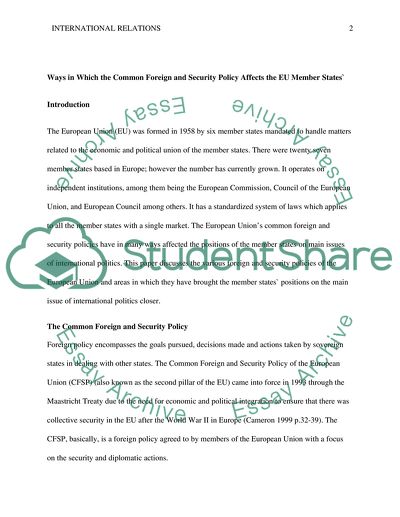Cite this document
(Ways in Which the Common Foreign and Security Policy Affects the EU Research Paper, n.d.)
Ways in Which the Common Foreign and Security Policy Affects the EU Research Paper. Retrieved from https://studentshare.org/politics/1764197-ways-in-which-the-common-foreign-and-security-policy-affects-the-eu-member-states
Ways in Which the Common Foreign and Security Policy Affects the EU Research Paper. Retrieved from https://studentshare.org/politics/1764197-ways-in-which-the-common-foreign-and-security-policy-affects-the-eu-member-states
(Ways in Which the Common Foreign and Security Policy Affects the EU Research Paper)
Ways in Which the Common Foreign and Security Policy Affects the EU Research Paper. https://studentshare.org/politics/1764197-ways-in-which-the-common-foreign-and-security-policy-affects-the-eu-member-states.
Ways in Which the Common Foreign and Security Policy Affects the EU Research Paper. https://studentshare.org/politics/1764197-ways-in-which-the-common-foreign-and-security-policy-affects-the-eu-member-states.
“Ways in Which the Common Foreign and Security Policy Affects the EU Research Paper”, n.d. https://studentshare.org/politics/1764197-ways-in-which-the-common-foreign-and-security-policy-affects-the-eu-member-states.


